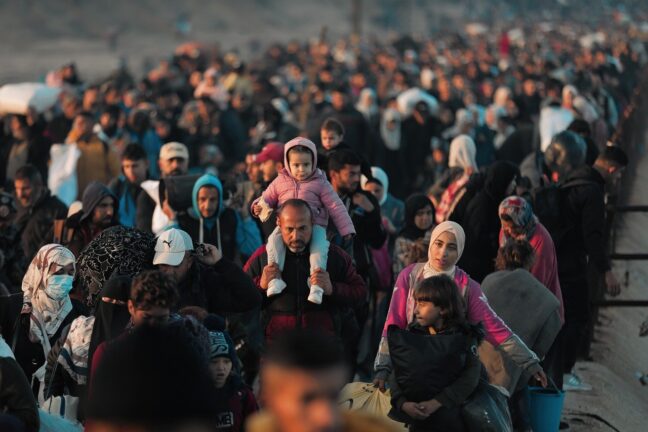The Court of Justice of the European Union (CJEU) has ruled that EU member states may designate third countries as “safe countries of origin” (whose citizens may be denied asylum) through national legislation. However, such classifications must always be subject to effective judicial oversight at the national level.
The ruling stems from two preliminary references by the Rome Tribunal, following the transfer of two Bangladeshi nationals to repatriation centers operated by Italy in Albania. An accelerated border procedure rejected their asylum applications, based on Italy’s national list of “safe” countries—which currently includes Bangladesh.
The Court found that while national laws can designate a country as “safe”. The process must also be transparent, with access to the sources on which such a decision is based, and applicants must have the right to challenge it before a judge.
Crucially, a country can only enjoy the safe status if it is safe for all of its population, with no exclusions for minorities or vulnerable groups. The fast-track procedure for nationals from such countries may still be used, but repatriation is allowed only after a full assessment of the asylum application. If the application is rejected following the ordinary procedure, expulsion remains possible.
You might be interested
The Albania model
The ruling strikes a blow to Italy’s much-publicized “Albania model”—a 2023 bilateral agreement signed by Rama and Meloni aimed at setting up migrant reception and repatriation centers in the Albanian towns of Shëngjin and Gjadër. The legal standards imposed by the Court now render these facilities practically unusable as originally planned.
The Italian government reacted by accusing the Court of overstepping its authority. Ms Meloni’s office claimed the ruling undermines efforts to combat illegal immigration and defend national borders. It reduces the legislative and operational autonomy of national governments and EU parliaments, the Italian PM’s office asserts.
In less than a year, the competence will pass to EU institutions, where Italy’s approach to combating illegal immigration is finally gaining traction. – MEP Nicola Procaccini (ECR/ITA)
MEP Nicola Procaccini (ECR/ITA), co-chair of his parliamentary group, called the ruling a case of “dangerous ambiguity”. On the one hand, he noted, the CJEU confirms member states’ exclusive competence to define what constitutes a “safe third country” for returns purposes. On the other, it defends the discretion of national judges to review the government’s determinations on such countries.
Dangerous ambiguity
The CJEU reaffirmed the primacy of EU law, which takes precedence over any conflicting national legislation – including laws designating “safe” countries of origin. However, a new EU Asylum Procedure Regulation is to enter into force on 12 June 2026, and could reshape the criteria for determining safe countries at the EU level.
In the meantime, the Albania model continues to gain attention in other European capitals and has earned public praise by Denmark’s rotating presidency of the EU Council. “In less than a year, the competence will pass to EU institutions, where Italy’s approach to combating illegal immigration is finally gaining traction,” Mr Procaccini said.
On the same day, the Court issued another, less publicized but significant judgment. An EU member state cannot invoke an unexpected influx of asylum seekers as a justification for failing to meet their basic needs. This appears to be a warning to EU institutions as they move toward implementing the new Pact on Migration and Asylum. It also is a reminder that the dignity of asylum seekers remains non-negotiable, regardless of the political context, whether such an approach is realistic or not.











